Words of the Ancients Resonating Today - A Quest for True Freedom and Independence
In a world overflowing with information and values, can we truly say we are living as "ourselves"? The words of figures like Fukuzawa Yukichi and Nitobe Inazo pose fundamental questions to modern people, who are often captivated by material wealth and the evaluations of others. Their words quietly suggest that the path to unwavering freedom and independence lies in polishing our inner selves through our own learning and contemplation, and choosing to act with responsibility.
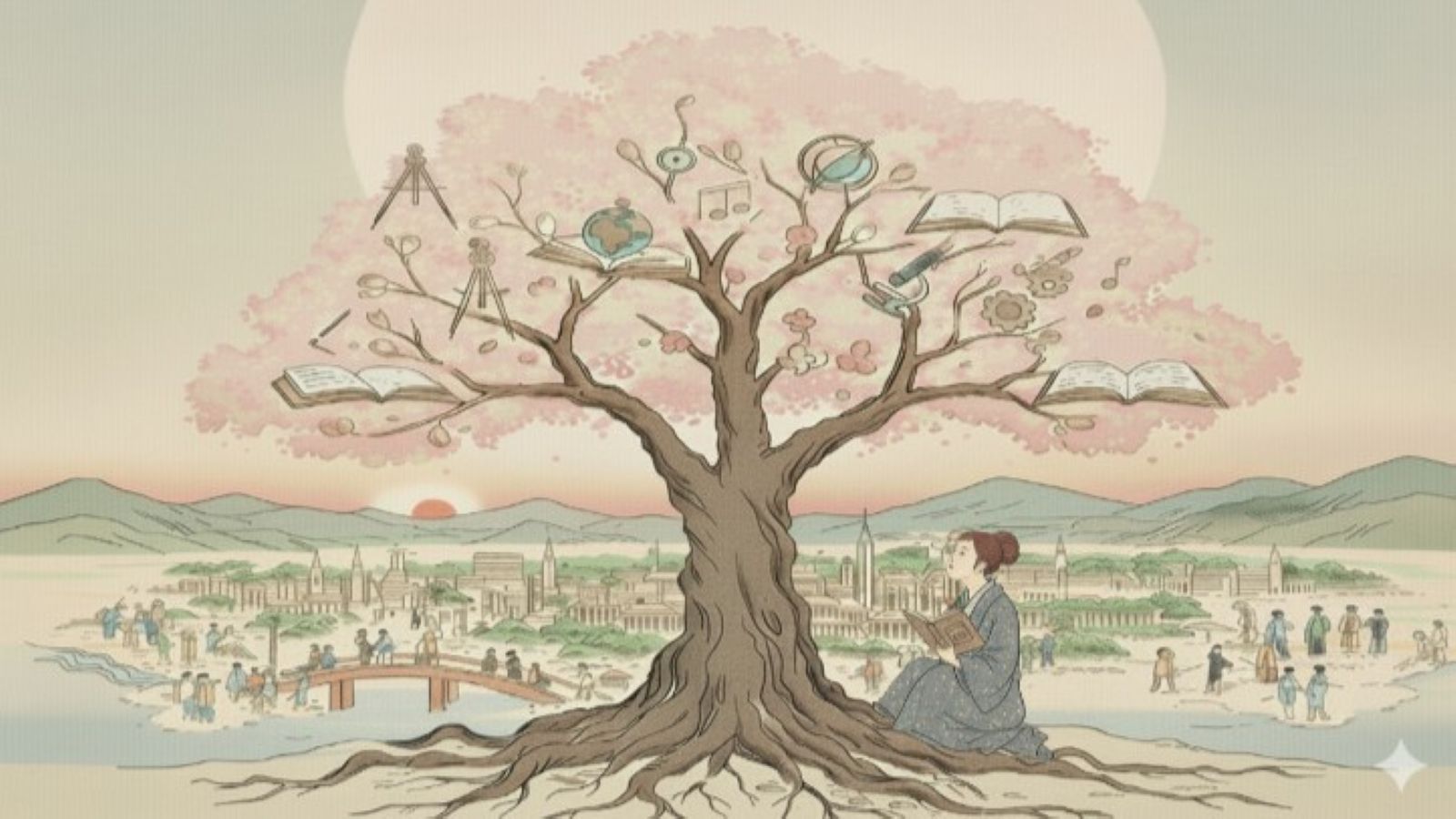
「すでに自由独立と言うときは、その字義の中におのずからまた義務の考えなかるべからず。」
“When we speak of freedom and independence, the idea of duty must naturally be included within that very meaning.”
—— Fukuzawa Yukichi, An Encouragement of Learning
[Commentary]
The voices demanding rights are loud, but are we prepared to fulfill our duties? Fukuzawa repeatedly emphasizes that the purpose of scholarship is the freedom and independence of the individual. However, the “independence” he speaks of does not merely refer to economic self-reliance. As this quote indicates, he believed that the very concepts of true freedom and independence contain their counterparts, “duty” and “responsibility.” It demonstrates the fundamental principle of modern civil society: those who enjoy rights must simultaneously fulfill their responsibilities to that society. This single sentence quietly teaches us that freedom is by no means unrestrained license, but is built upon a strict sense of self-regulating responsibility.
「愚民の上に
“Just as there is harsh government over an ignorant populace, so it is that there is good government over a good populace.”
—— Fukuzawa Yukichi, An Encouragement of Learning
[Commentary]
Is good governance something given to us by others, or is it something we create ourselves? Fukuzawa points out the danger of a populace remaining ignorant and uneducated. To govern people who do not understand reason, there is no choice but to rule by intimidation, which in turn invites harsh governance (tyranny). This famous passage suggests that the nature of politics is closely linked to the intellectual and moral standards of its citizens. It sharply questions our responsibility at the core of democracy, positing that a good government can only emerge when the people learn proactively and possess an independent spirit. It seems to confront us with the harsh truth that the state of a nation is a mirror reflecting the consciousness of each and every person living there.
「この一身の自由を妨げんとする者あらば政府の官吏も憚るに足らず。」
“If there be any who would obstruct the freedom of this self, one need not hesitate to stand against even government officials.”
—— Fukuzawa Yukichi, An Encouragement of Learning
[Commentary]
If an unjust power sought to take away your freedom, how would you resist? Fukuzawa criticizes the past era when individual liberty was slighted under the pretext of “official business,” and preaches that now, one need not be intimidated by anyone as long as one’s actions are based on reason. He argues that if citizens have grievances against the government, they should debate them openly through proper procedures, and that this is both their right and their responsibility (their station). This sentence is perhaps the most radical expression of that spirit. It shows an unyielding will to never submit to any entity that would infringe upon the natural right of individual freedom, even if that entity is the state itself. It resonates strongly in the heart, a reminder that true freedom is not merely given, but is a value that must, at times, be fought for and defended.
「もしわれわれが事業を遺すことができぬならば、思想を遺してそうして将来にいたってわれわれの事業をなすことができると思う。」
“If we cannot leave behind a business or an enterprise, I believe we can leave behind an idea, and in so doing, our work can be accomplished in the future.”
—— Uchimura Kanzō, The Greatest Legacy to Posterity
[Commentary]
Is it possible for a single person to continue moving the world even after death? The author recounts the grand history of how the philosopher John Locke, by setting down the idea that “the individual is more important than the state” in a single book, became the ideological wellspring for the French Revolution and American independence. He points out the fact that Locke, who was physically frail and of low social standing, exerted an immense influence on posterity through a single idea. This passage suggests that even without a visible enterprise or wealth, a single, deeply refined idea can move people’s hearts across time and space, eventually becoming a “business” that transforms society. An independent spirit, established through one’s own learning and contemplation, may be passed into the hands of someone in the future, even if it takes no tangible form during one’s lifetime, and may weave a new story of freedom and responsibility.
「自ら動く自ら働く気質を奨励するには、モット生徒に質問をさせたり、疑があったならこれを吐かせる工風が必要と思う。」
“To encourage a disposition to move and work for oneself, I believe it is necessary to devise ways to have students ask more questions and to voice any doubts they may have.”
—— Nitobe Inazō, The Education of Educators
[Commentary]
Which fosters greater growth in a person: memorizing taught answers, or formulating questions oneself? Nitobe sharply criticized the education of his time as being “passive,” a one-way cramming of knowledge. He saw it as a problem that students would simply accept everything with a “yes, yes,” unable to think for themselves or voice their doubts. This sentence is an appeal for a departure from such an education. True learning is not about swallowing given information whole. Rather, Nitobe believed it is nurtured in the courage to think with one’s own mind, to harbor doubts, and to express them. This powerfully demonstrates that cultivating a spirit of “self-help”—not just asking for instruction, but moving and working for oneself—is the cornerstone of intellectual independence.
「風俗習慣に逆らうは独立にあらず」
“To go against customs and habits is not independence.”
—— Nitobe Inazō, Jikeiroku, Chapter 9 - Independence of Mind and Body
[Commentary]
Does not walking the same path as others mean the same thing as finding a path of one’s own? Nitobe admonished the tendency to mistake wearing eccentric clothing or acting outside of social norms for spiritual independence. True independence, he believed, is not demonstrated through superficial rebelliousness or odd behavior. Rather, its essence lies in living within society while refusing to be swayed by the evaluations of others or the trends of the times, instead making judgments and acting according to one’s own inner voice. Just as freedom is not mere license, this short phrase teaches us that independence does not reside in easy rebellion. Maintaining an internal discipline based on one’s own responsibility is, indeed, the path to true self-reliance.
「學問の最大目的は人間を圓滿に發達せしむることである。」
“The ultimate purpose of learning is to bring about the well-rounded development of a human being.”
—— Nitobe Inazō, The Aims of Education
[Commentary]
Just as one cultivates a tree, should not learning also serve to raise a person in a balanced way? Nitobe lamented the tendency for scholarship to become biased toward specific specialized fields, producing “eccentric scholars” isolated from society. His ideal was a harmonious personality, one who possessed not only expert knowledge but could also interact amicably with anyone as a member of society. This quote expresses his conviction that the ultimate goal of learning is not the mere accumulation of knowledge, but the rich, all-around development of a person. This is a manifestation of the idea that cultivating the ability to deeply understand oneself and coexist with others through learning is what leads to true independence in society. Knowledge should be a bridge to connect with the world, not a material for building a solitary fortress.
「知らるることに心を労せず、ただ知ることにのみ努めるという精神」
“The spirit of not troubling one’s mind with being known, but striving only to know.”
—— Watsuji Tetsurō, Confucius
[Commentary]
Do we learn to be recognized by others, or do we find joy in the act of learning itself? This book deciphers the structure of the Analects, revealing the spirit of Confucius and his disciples toward scholarship. The quoted passage emphasizes a way of learning that aims purely to seek truth itself, without being troubled by the evaluations or fame that come from others. This can be said to represent the ideal form of intellectual “independence” and “self-help”—to be free from societal measures and to continue learning according to one’s own inner motivations. This attitude of single-mindedly pursuing the Way, untethered by external conditions such as wealth or poverty, seems to ask us, living in the modern age, what the true essence of learning is.
「人を裁くものは自分も裁かれなければならない。」
“Those who judge others must themselves be judged.”
—— Watsuji Tetsurō, Letters from a Certain Thinker
[Commentary]
When we point out the flaws in others, do we see our own reflection in a mirror? This passage is spoken in a scene where a thinker, after speaking ill of others with a friend, is made aware of his own arrogance by his wife’s silent gaze and deeply regrets it. Here lies the painful realization that no one has the right to unilaterally condemn and judge another. It is a severe ethical reflection that the very blade used to convict others will eventually be turned upon oneself. This is the learning process that demands a mature “independence”—one that does not take refuge in a facile sense of justice but takes “responsibility” for the consequences of one’s own words and actions. The “self-help” effort of reflecting on oneself before blaming others is indispensable. This quote teaches those of us prone to brandishing righteous arguments about the gravity of confronting others and the necessity of humility.
「私たちはただ未来を信じて、現在に努力すればいいのです。」
“We need only believe in the future and strive in the present.”
—— Watsuji Tetsurō, Letters from a Certain Thinker
[Commentary]
How should we face an uncertain future that we cannot see? This work is written in the form of a thinker’s letters to a friend, in which he spells out his own anguish and reflections. This passage appears in a scene where he expresses his resolve to overcome self-disappointment and look forward once again. Since no one knows what the future holds, it preaches that the only path is to neither hope nor despair excessively, but simply to do what one can now—that is, to “strive in the present.” This is the very spirit of “self-help” and “responsibility”—of forging a future through one’s own efforts rather than blaming fate on others. It is also a powerful declaration of “independence,” suggesting that the present effort of continuing to learn is the best preparation for the time to come. This quote seems to give us, living in uncertain times, the courage to plant our feet firmly on the ground and advance one step at a time.
(Editorial Cooperation: Haruna Ishita, Momona Sassa)
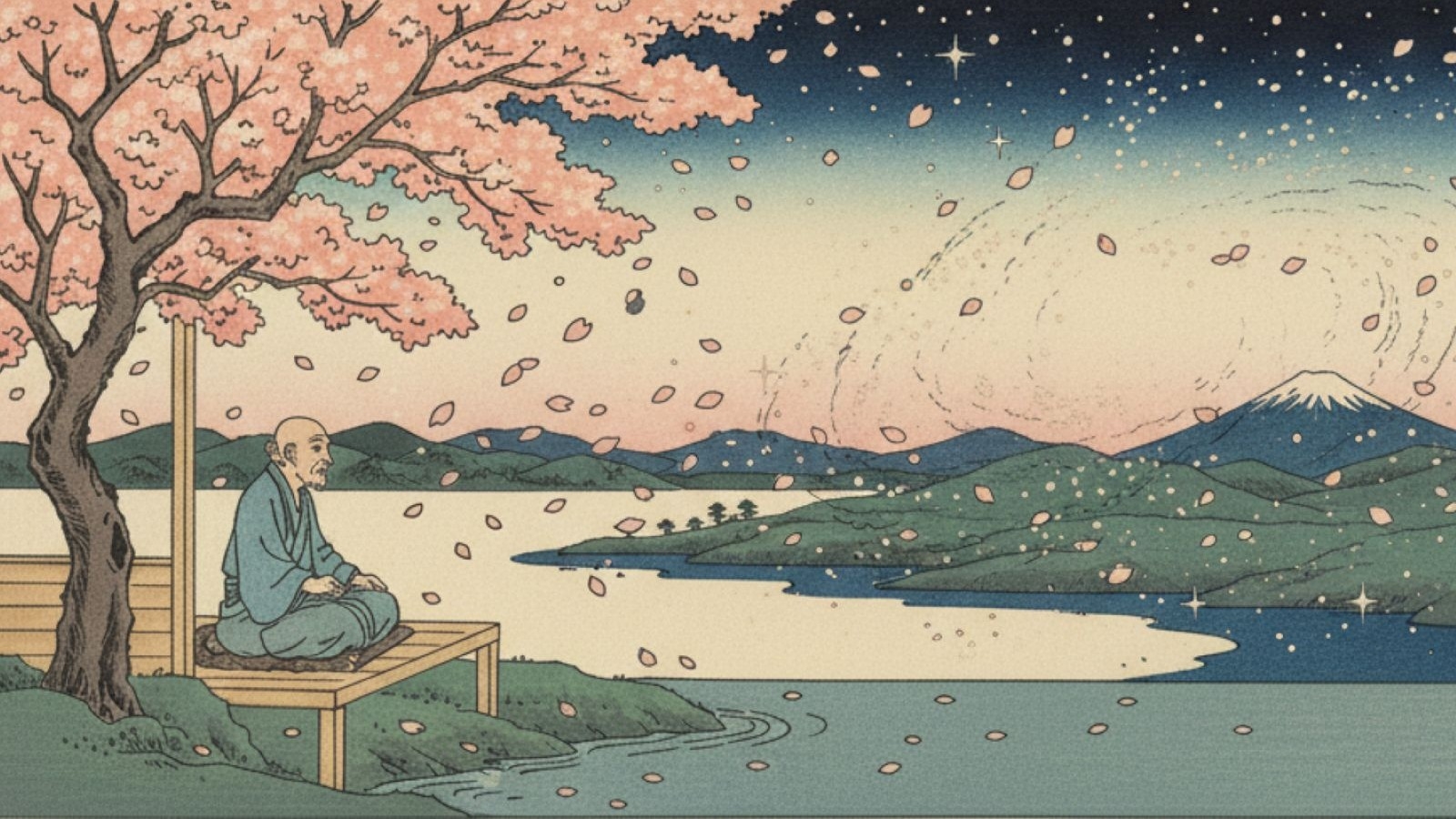
Japanese Views on Seasons - The Gaze of Literary Figures
Japanese literary figures have deeply engaged with the shifting seasons and the workings of life through various forms of expression such as novels and essays. Their delicate sensibilities and keen powers of observation open the door to a dialogue with nature for us, teaching us the beauty and philosophy hidden within everyday landscapes.
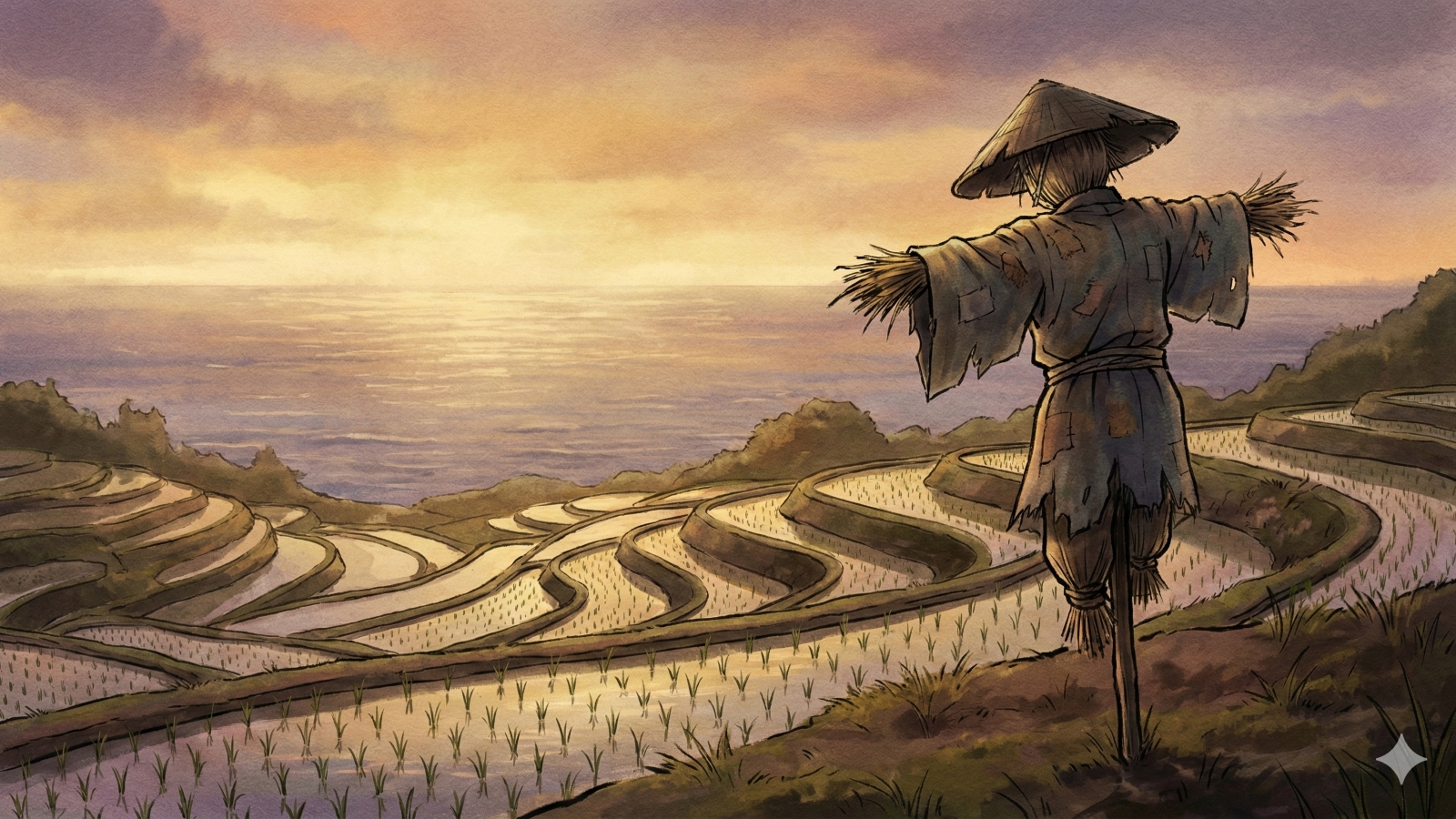
Japan's Primal Landscapes - A Tale of Memories Told by the Land
Superimposing the deceased onto the buzzing of flies, seeing gods in one-legged scarecrows. For Japanese people, these mysterious stories were not fantasy, but "life" itself, right next door. Longing for lands beyond the sea, legends remaining in ancient mounds. Why not travel through the frightening yet gentle "primal landscapes of the heart" gathered by Kunio Yanagita, Lafcadio Hearn, and others?
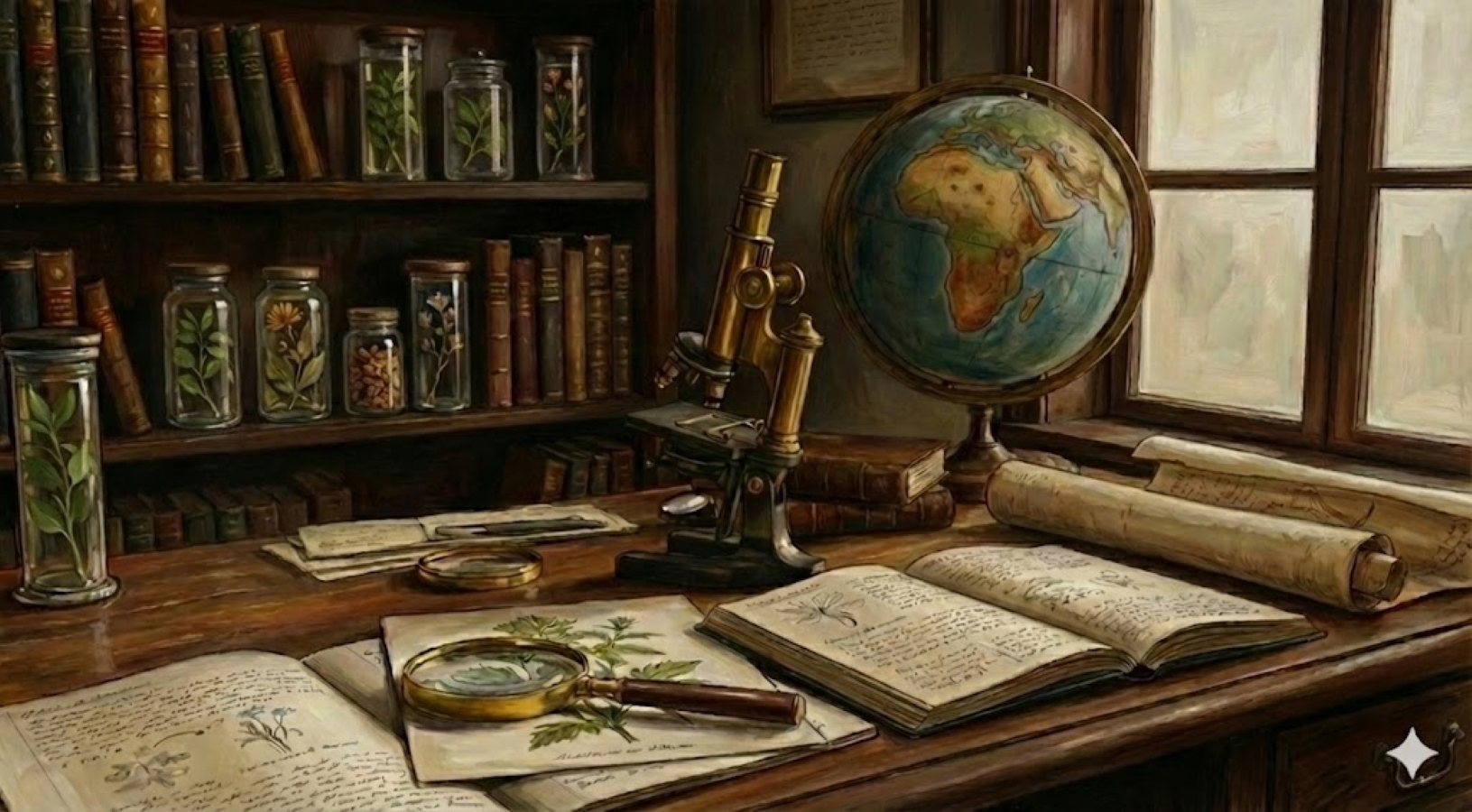
To Wonders Beyond Logic - The Beautiful Abyss Peered into by Scientists
Science is not just cold calculations. It is awe for nature beyond human understanding and an endless quest for beauty. Seeing the universe in a snowflake, feeling the ferocity of life in roadside grass... These are the adventurers of knowledge who confronted the overwhelming "mysteries" that appear only at the end of logic. We touch upon the records of their quiet yet passionate souls.
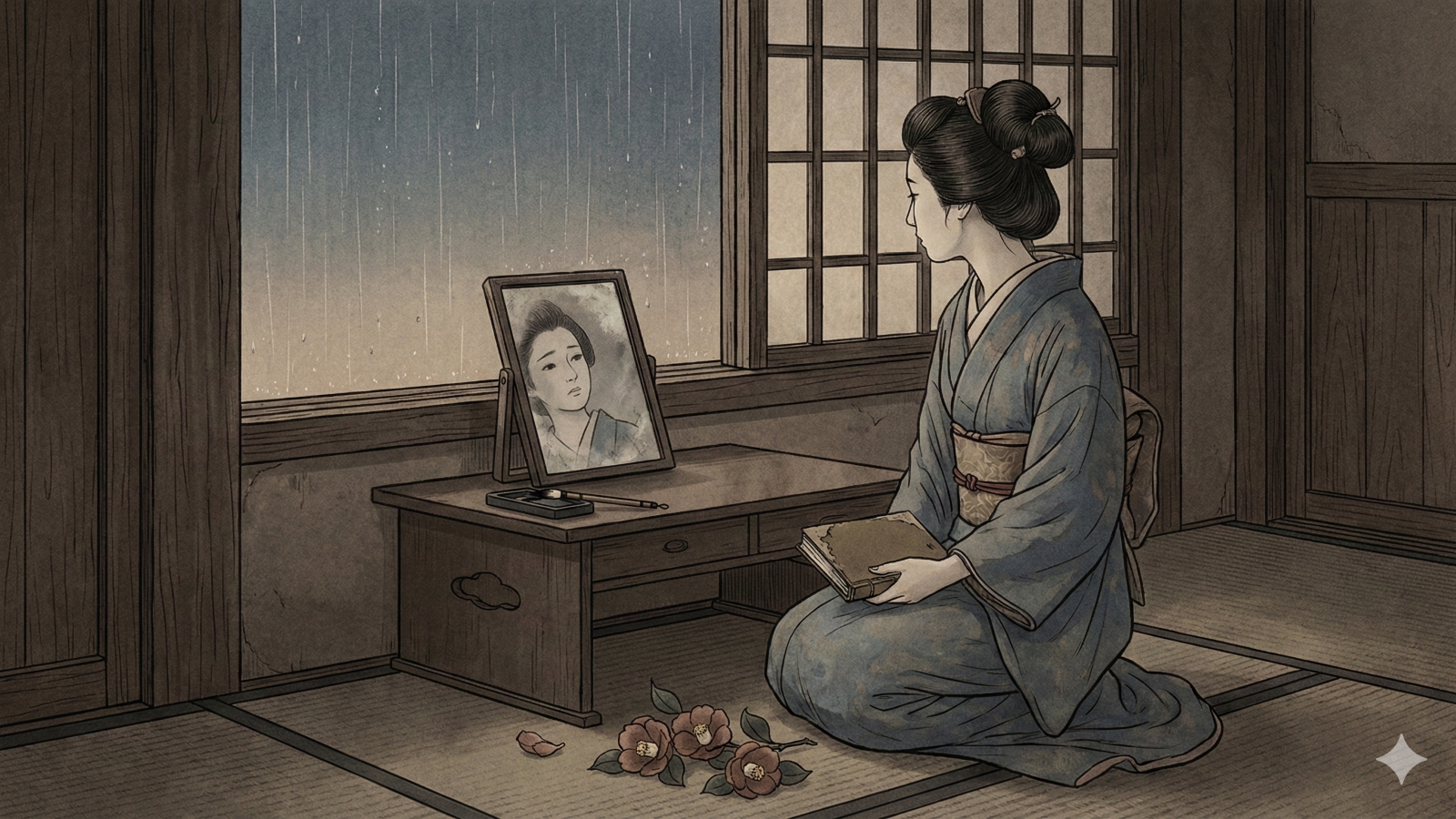
The Soul Screaming "I" - Stories of Fate and Pride by Modern Women
Should women's lives be plastered over with resignation to fate? Or is it a battle to break through social barriers and win one's own "life"? The dry self-mockery spat out by Ichiyō, the poignant scream released by Akiko for her beloved. We listen to the cries of their souls as they resisted the chains of their era, struggling through the mud to establish the "self."